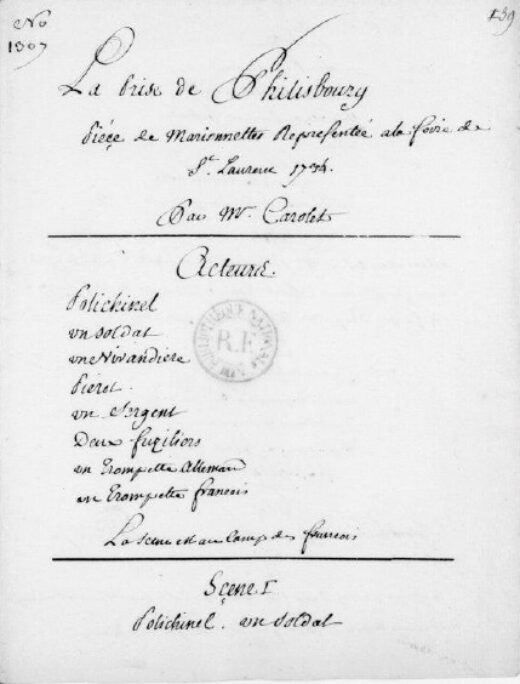
Manuscript
13 pages
Author(s)
La Prise de Philisbourg
Philippsbourg (in German: Philippsburg) is a small fortified town on the right shore of the Rhine, which was besieged and captured by the French army in July 1734, during the War of the Polish Succession (1734-1738).
Carolet’s play was performed for the first time only a few days after the town was captured. It reuses several motifs (Polichinelle’s fear, the hanging of the deserter) from La Prise du fort de Kehl, written a few months before. This play was most likely Carolet’s too, but the police had not approved it for performance because it criticised the war more explicitly.
The manuscript is kept in the Soleinne collection of the Bibliothèque nationale de France (Ms fr. 9315).
Scenes from military life
A Soldat (soldier) wakes Polichinelle up: everyone is waiting for him to launch an attack on Philippsbourg. Cannons fires frighten Polichinelle, but a Vivandière (women sutlers or canteen keepers) brings him some eau de vie to comfort him. Pierrot, who was mistaken for a spy, is interrogated by a Sergent (Sergeant): he threatens to have him hanged. As he is being led into a trench, the town surrenders. The play ends with a divertissement and a vaudeville.
First performance
Foire Saint Laurent